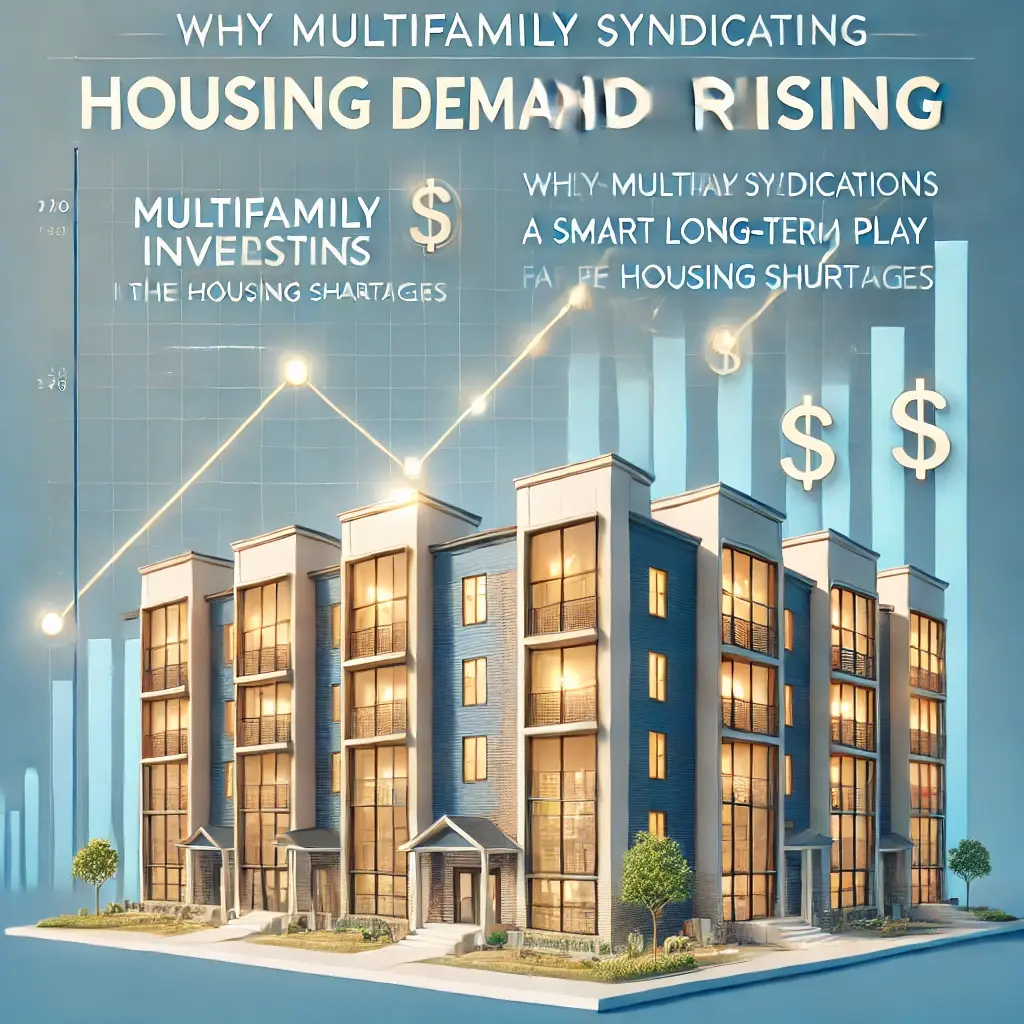Do You Want to Pay More or Less Taxes? Syndications Are The Answer
Welcome to a comprehensive exploration of a topic that has the potential to significantly impact your syndication investments: tax benefits. While we embark on this journey into the realm of tax advantages, it's crucial to remember that the information presented here is for educational purposes only. Always consult your certified public accountant (CPA) or tax professional for personalized advice tailored to your unique financial situation.
Cost Segregation: Maximizing Depreciation
One of the most powerful tools in a real estate syndication investor's arsenal is cost segregation. This strategy involves breaking down the cost of a property into various components, each with a different depreciation timeline. By doing so, you can accelerate the depreciation of certain elements, resulting in higher deductions and reduced taxable income.
Let's delve deeper into cost segregation. In traditional real estate depreciation, both the building and its components are typically depreciated over 27.5 years for residential properties or 39 years for commercial properties. Cost segregation allows you to identify shorter-lived components, such as appliances, flooring, or lighting, which can be depreciated over 5, 7, or 15 years. This accelerated depreciation means you can deduct a more significant portion of your investment sooner, leading to reduced taxes and increased cash flow.
Accelerated Depreciation and Bonus Depreciation: Tax-Saving Strategies
Another tax-saving strategy at your disposal is accelerated depreciation, which includes bonus depreciation. Bonus depreciation allows you to deduct a substantial portion of the property's cost in the year it's placed in service. In some cases, this can result in a sizeable deduction, effectively reducing your taxable income and lowering your tax liability.
The Tax Cuts and Jobs Act (TCJA) allowed for 100% bonus depreciation for qualified property placed in service after September 27, 2017, and before January 1, 2023. However, it's crucial to note that this benefit has an expiration date and a gradual phase-out schedule:
- 2022: 100%
- 2023: 80%
- 2024: 60%
- 2025: 40%
- 2026: 20%
- 2027: 0%
This phase-out schedule highlights the significance of timing when it comes to leveraging bonus depreciation. For investors looking to sell property and retire, taking advantage of bonus depreciation in the years leading up to 2027 could help offset income from other investments and reduce their tax bill.
Maximizing Tax Benefits: The Synergy of Bonus Depreciation and Cost Segregation
Now, let's explore how savvy investors can combine these two tax strategies for maximum benefit. By applying cost segregation to your real estate syndication investment and identifying shorter-lived components, you create the opportunity for accelerated depreciation.
Here's the synergy: Bonus depreciation allows you to deduct a substantial portion of the property's cost in the year it's placed in service. Cost segregation identifies specific components of the property that can be depreciated over shorter periods. When you combine these strategies, you effectively create a scenario where you can offset income from other investments by taking significant deductions related to your property.
For investors planning for retirement, this combination becomes even more valuable. It can help reduce your taxable income, potentially lowering your overall tax bill and ensuring a more financially secure retirement.
In real estate syndications, understanding and leveraging tax benefits, especially the combination of bonus depreciation and cost segregation, can significantly enhance your investment returns. As you explore these strategies, be sure to work closely with your financial team to ensure that your investment aligns with your tax goals and overall financial plan.
Let's Continue the Conversation: We invite you to engage with us in several ways:
-
Explore Opportunities: Discover how our syndications can improve your tax bill. Contact us to explore investment opportunities and gain insights into the path to passive income. CLICK HERE to schedule a call.
-
Subscribe to Our Blog: Stay informed about the role of real estate in retirement planning. Subscribe to our blog and receive regular updates, expert advice, and success stories.
-
Connect on Social Media: Join our community on social media to interact with like-minded individuals who are also on the journey to a prosperous retirement.
CLICK HERE to schedule a call.
Download our free e-book at the link https://content.bluepathholdings.com/free-ebook.

 By
By


